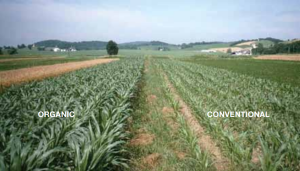Phase Out of GMO Crops in Boulder County, Colorado

Organic and GMO farmers differ on the need for a ban.
County staff in Colorado’s Boulder County have been directed to draft a plan to rid county-owned land of genetically modified crops in the relatively near future. The directive was given recently (March 2016) by the Board of County Commissioners in the best interest of their people.
Under the current county cropland policy, adopted in 2011, tenant
farmers are allowed to grow certain varieties of GM sugar beets and
corn. But groups challenging the safety and health impacts of GM crops
are eager to see them phased out. Advocates of non-GM agriculture fear
that human health and the water, soil, and environment in general are
negatively affected by growing biotech’s seed.
Conventional farmers currently growing GMOs on county-owned land argue
that GM crops are safe They even claim that growing GM crops allows them
to reduce the amount of water and pesticides they use. These are the
same claims that the biotech industry has made.
No formal vote was taken, but the discussion by the Board of County Commissioners indicated that a plan for eliminating GMO crops would be supported by at least two of the three commissioners, Deb Gardner and Elise Jones.
Jones said the nearly 1,180 total acres of leased land could see GMOs phased out over a three-to-five-year period.
Gardner said the phase-out “should happen in close partnership with the farmers leasing the land” and may have to be done “on a field-by-field” basis.
The third commissioner, Cindy Domenico, said she supported the earlier 5-3 vote by the Parks and Open Space Advisory Committee members on Tuesday to continue the current permissive policy toward GMO sugar beets and corn.
Domenico also said that if a GMO phase-out were inevitable, she would prefer it over a five-to-seven-year period instead of a three-to-five year one. She noted, though, that her opinion is in the minority.
Differing views were voiced by Boulder community members who sat in on the county commissioners’ lengthy presentations.
Dan Lisco expressed disappointment in the commissioners’ decision. Lisco is president of the Farmers Alliance for Integrated Resources (FAIR), which includes many tenant farmers as well as some farmers who grow conventional crops on their families’ private lands. Lisco claimed that “science supports that GMOs are safe.” He also echoed biotech’s debunked claim that growing GMO crops requires less pesticides than organic farming does.
Many studies refute Lisco’s claims that GMOs lower pesticide use. For example, a long-term study in the U.S. by Charles Benbrook indicates that increased glyphosate use is directly linked to increased growing of GMO crops.
Some tenant farmers may be looking into legal ways to overturn the commissioners’ plan to ban GMOs, but Richard Andrews is much happier with it. Andrews is a former organic farmer who has fought for years against GMO crops being allowed on county lands. Andrews said:
“I’m obviously pleased that they took the right path.”
The Parks and Open Space Department’s agriculture staff was not given a
specific deadline for submitting the draft plan for GMO phase-out – but
organic farming advocates are looking forward to it.
Author:
christina sarich
Sources:
